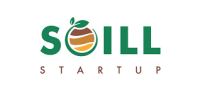The Mission Soil project hub provides information on projects funded under the Mission and other relevant initiatives. Through the project hub, it will be possible to gain oversight of the emerging Mission project portfolio and follow the progress and outcomes of funded projects and initiatives more easily. The hub provides information on the goals, activities, and results, factual or expected, of the projects and initiatives, outlining the relevance to Mission objectives.
The repository enables searches by Mission objectives (specific and operational), funding programme, time and country and allows free data downloading.




